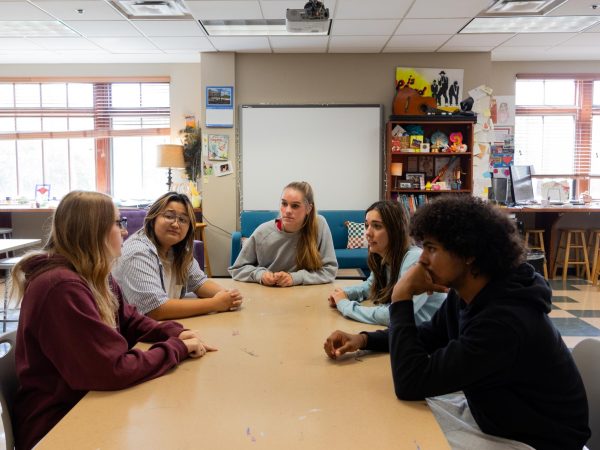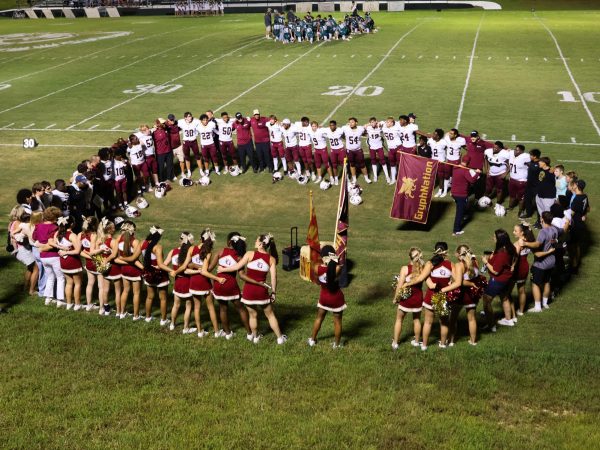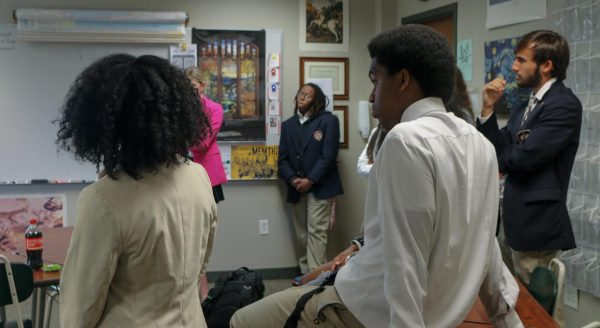Switching it up
Student government makes reforms to its election process
This year, student government at St. George’s altered its election process in hopes of lessening popularity’s effect on elections.
Last year, candidates did not have the opportunity to speak to students about what they hoped to accomplish on student government, so this year, candidates were given that opportunity through several panels. There was a separate panel discussion for each grade and a final panel discussions for students running for executive positions.
At the discussion, members of Student Government asked current candidates questions, which they answered in front of students who attended. Some of the questions included: what experiences do you have leading a group, how can you best represent the voice of the student body through your role as a grade level representative, and what is something other than parties and pep rallies do you feel is a challenge at school?
Assistant Director of Student Life Mrs. Emmy McClain hoped that the panel would curb students’ desire to vote only for their friends or who they think is the most popular.
Two years ago, students running for office would give speeches in front of the whole school in order to gain voters, but some candidates did not take the speeches seriously.
“People were getting voted in more because they were being funny in front of everybody than because they actually had something important to say,” Mrs. McClain said.
Senior Alton Stovall, the current Student Government president, helped come up with the new election process.
“It was definitely finding a balance between giving the candidates a voice and also making sure that you can’t just get on Student Government if you say the funniest thing in the world,” Stovall said.
Junior Margo Valadie ran for student government last year and believed the new election had many benefits.
“I feel like last year it was like ‘oh you know this name, vote for this name,'” Valadie said. “This year, you know the face, and you’re voting for them and their ideas not just their name, like a popularity contest.”
Another addition to the election process this year were the interviews, which were designed to weed out anyone who was not serious about holding the position.
“That interview process doesn’t cut them from being able to run,” Mrs. McClain said. “That interview is more just to talk with the candidate about what their strengths are and make sure they’re on the right ballot that fits with their strength.”






